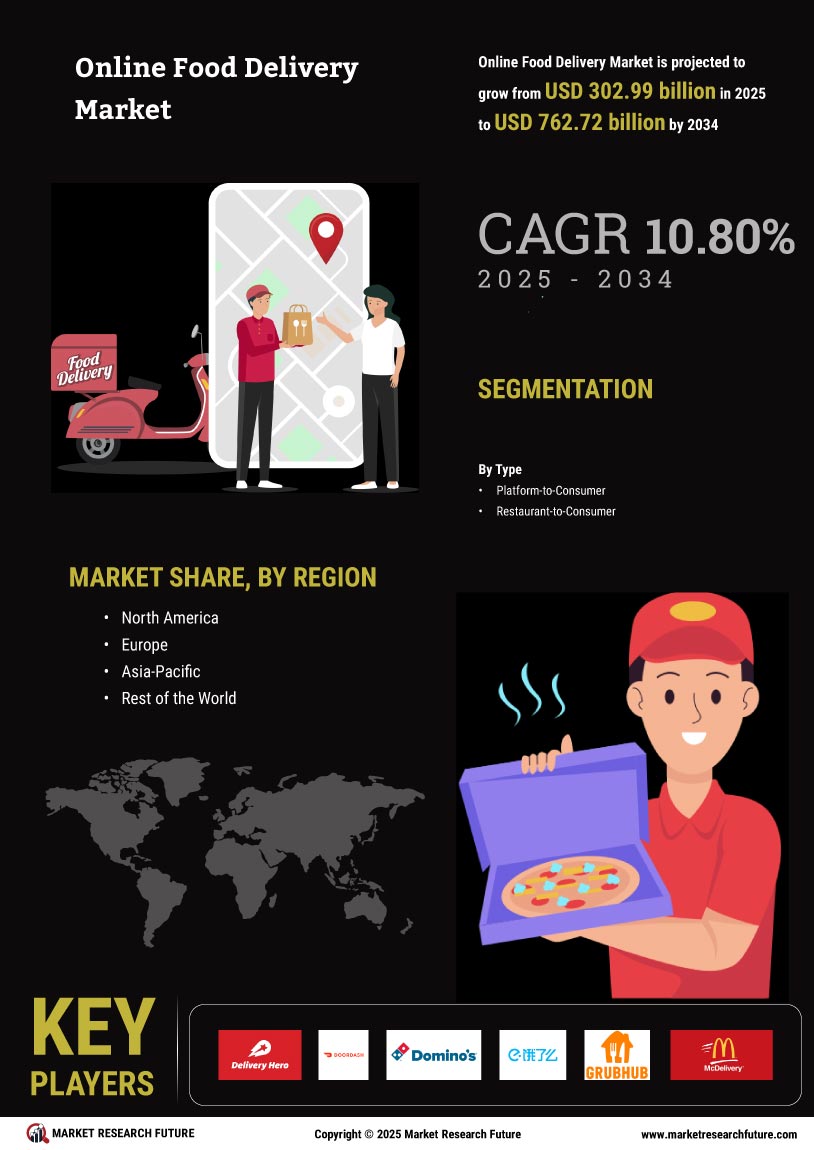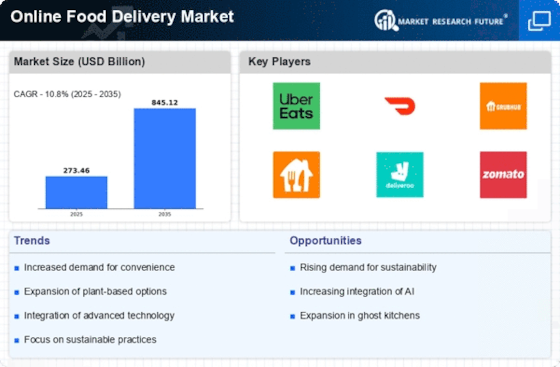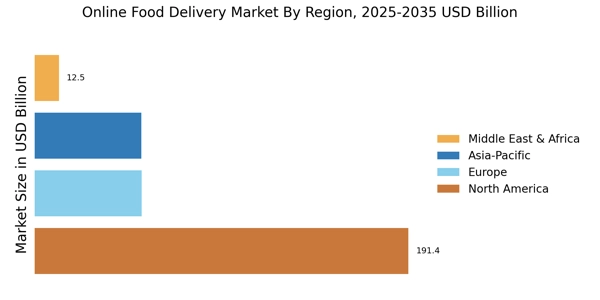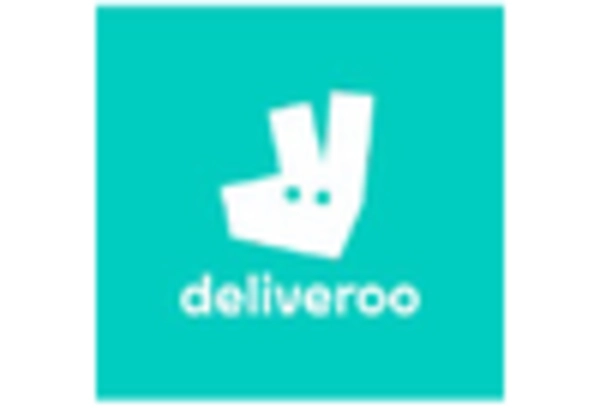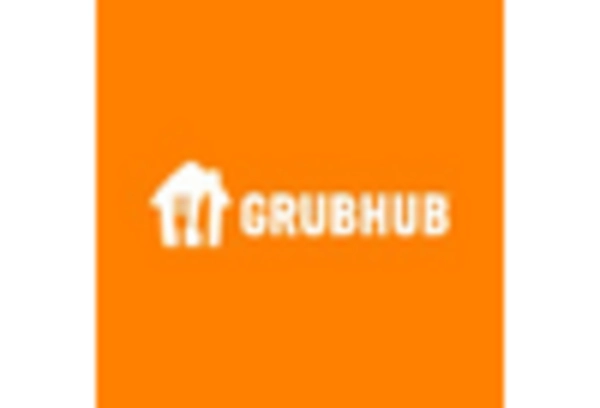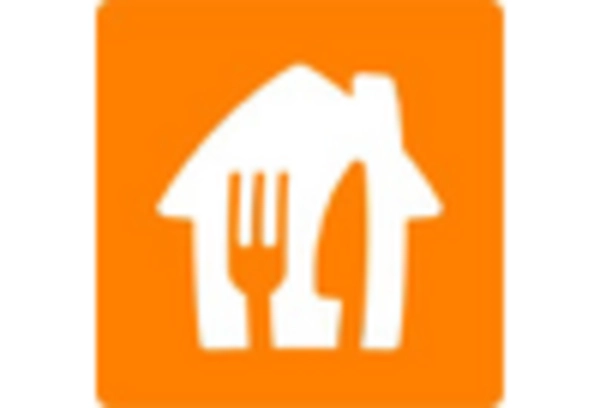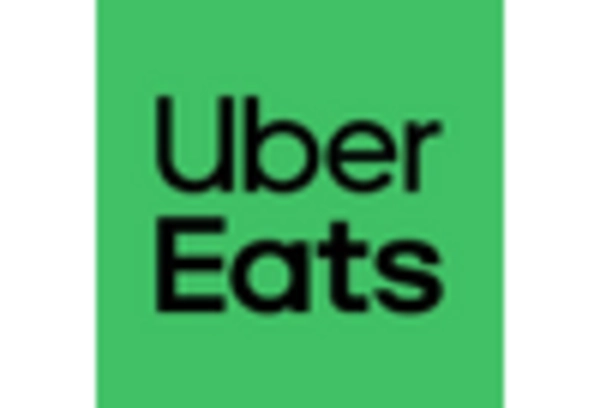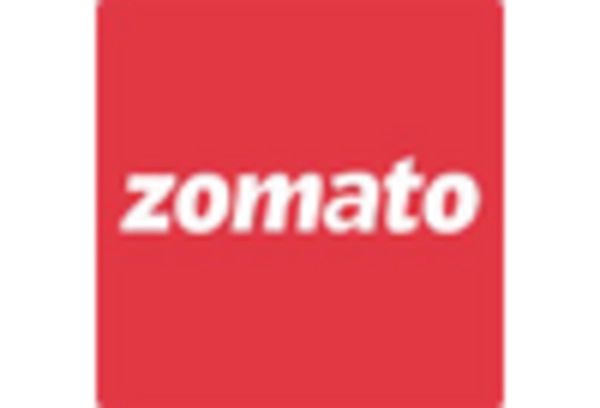Increased Urbanization
The trend of urbanization appears to be a pivotal driver for the Online Food Delivery Market. As more individuals migrate to urban areas, the demand for convenient food options escalates. Urban centers often feature a fast-paced lifestyle, where time constraints make traditional dining less appealing. According to recent data, urban populations are projected to reach 68% by 2050, which could significantly bolster the Online Food Delivery Market. This demographic shift not only increases the customer base but also encourages restaurants to partner with delivery platforms to cater to the growing demand. Consequently, the Online Food Delivery Market is likely to experience substantial growth as urban dwellers seek efficient meal solutions.
Health and Wellness Trends
Health and wellness trends are increasingly influencing the Online Food Delivery Market. Consumers are becoming more health-conscious, seeking nutritious meal options that align with their dietary preferences. This shift has prompted many food delivery services to expand their menus to include organic, vegan, and gluten-free options. Recent data indicates that the demand for healthy food choices has surged, with a notable increase in orders for plant-based meals. As awareness of health issues rises, the Online Food Delivery Market is likely to adapt by offering more health-oriented selections, thereby attracting a broader customer base and fostering market growth.
Technological Advancements
Technological advancements are reshaping the Online Food Delivery Market in profound ways. The integration of mobile applications, artificial intelligence, and data analytics has streamlined the ordering process, enhancing user experience. For instance, the use of AI algorithms allows platforms to offer personalized recommendations, which can increase order frequency. Moreover, the rise of contactless payment options has made transactions more secure and efficient, appealing to a broader audience. As technology continues to evolve, it is likely that the Online Food Delivery Market will see further innovations, such as drone deliveries and automated kitchens, which could revolutionize the way food is delivered.
Changing Consumer Preferences
Consumer preferences are evolving, and this shift is a crucial driver for the Online Food Delivery Market. A growing number of consumers are prioritizing convenience and variety in their dining choices. Recent surveys indicate that approximately 60% of consumers prefer ordering food online rather than dining out, reflecting a significant change in behavior. This trend is particularly pronounced among younger demographics, who are more inclined to utilize mobile applications for food delivery. As tastes diversify and the demand for international cuisines rises, the Online Food Delivery Market is positioned to expand. Restaurants are increasingly adapting their menus to meet these preferences, further fueling the market's growth.
Expansion of Delivery Platforms
The expansion of delivery platforms is a significant driver for the Online Food Delivery Market. Numerous companies are entering the market, creating a competitive landscape that benefits consumers through better services and pricing. This proliferation of platforms has led to increased partnerships with local restaurants, allowing them to reach a wider audience. Recent statistics suggest that the number of food delivery services has increased by over 30% in the last few years, indicating a robust market environment. As these platforms continue to grow, they are likely to enhance their offerings, including subscription models and loyalty programs, which could further stimulate the Online Food Delivery Market.
